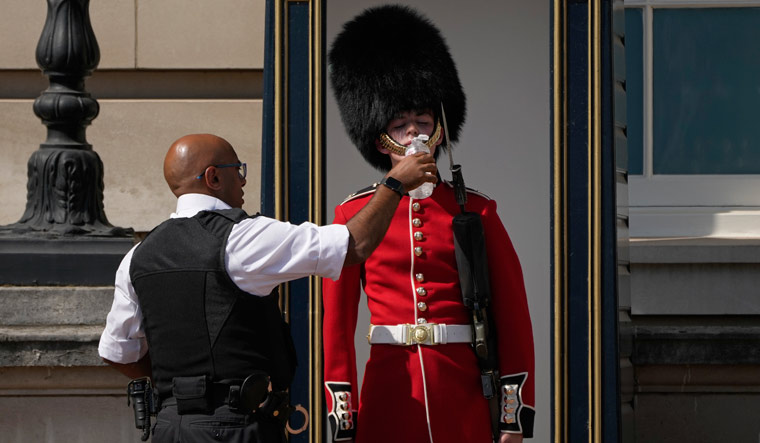Climate change made the torrid heatwave that swept across the United Kingdom last week 10 times more likely, according to an analysis by an international team of leading climate scientists.
On July 18-19, an exceptional heatwave affected large parts of the UK. It was the first time that temperatures of 40 degrees Celsius and above had been realised in Britain.
In total 46 stations met or exceeded the previous record in a band stretching from Kent to North Yorkshire. Scotland recorded its maximum temperature above 35 degrees Celsius for the first time breaking the previous record of 32.9 degrees Celsius on August 9, 2003.
Twenty-one scientists, who are part of the World Weather Attribution group, analysed weather data and computer simulations to compare today's climate with the past.
The analysis focused on the maximum temperatures over two days in the UK's most affected region, an area around central England and east Wales. It found that the frequency and magnitude of such events has increased due to human-caused climate change.
However, determining the exact contribution of climate change proved difficult, as extreme heat in western Europe has increased more than estimated by climate models, the scientists said.
Historical weather records indicate that the temperatures would have been four degrees Celsius lower in a world that had not been warmed by human activities.
This suggests that models are underestimating the real impact of human-caused climate change on high temperatures in the UK and other parts of western Europe, they said.
It also means that the results of the analysis are conservative and climate change likely increased the frequency of the event by more than a factor of 10, the scientists said.
In Europe and other parts of the world we are seeing more and more record-breaking heatwaves causing extreme temperatures that have become hotter faster than in most climate models.
It's a worrying finding that suggests that if carbon emissions are not rapidly cut, the consequences of climate change on extreme heat in Europe, which already is extremely deadly, could be even worse than we previously thought, said Friederike Otto, Senior Lecturer in Climate Science at the Grantham Institute for Climate Change, Imperial College London.
Two years ago, scientists at the UK Met Office found the chance of seeing 40 degrees in the UK was now 1 in 100 in any given year, up from 1 in 1000 in the natural climate. It's been sobering to see such an event happen so soon after that study, to see the raw data coming back from our weather stations, said Fraser Lott, Climate Monitoring and Attribution Scientist at the Met Office Hadley Centre.





